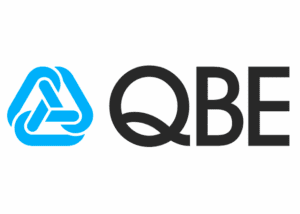When can you drop PMI on an FHA loan?
When can you drop PMI on an FHA loan?
Getting rid of PMI is fairly straightforward: Once you accrue 20 percent equity in your home, either by making payments to reach that level or by increasing your home’s value, you can request to have PMI removed. Jan 20, 2021
Why is my PMI so high?
The greater the combined risk factors, the higher the cost of PMI, similar to how a mortgage rate increases as the associated loan becomes more high-risk. So if the home is an investment property with a low FICO score, the cost will be higher than a primary residence with an excellent credit score.
Is PMI required with 10 down?
Typically a lender will require you to pay for PMI if your down payment is less than 20% on a conventional mortgage. You can get rid of PMI after you build up enough equity in your home. Feb 5, 2020
Does mortgage insurance go away after 20?
“As long as you’re not taking an FHA loan, you’re not married to the PMI. You can drop it once you achieve a 20 percent equity cushion, which may only be a few years away depending on home price appreciation. Oct 25, 2021
What do you mean by insurance?
Insurance is a way to manage your risk. When you buy insurance, you purchase protection against unexpected financial losses. The insurance company pays you or someone you choose if something bad happens to you. If you have no insurance and an accident happens, you may be responsible for all related costs.
Why do u need insurance?
Insurance is one way to protect your life, your health, your ability to earn an income, and to keep a roof over your head when things go wrong. There are a number of different types of insurance available, and it’s unlikely you’d need (or even want) them all.
What insurance companies do?
Insurance companies sell coverage designed to help protect you against loss, theft, or damage to you or your property. The insurance companies make this possible by sharing risk among a large group of people. Jul 19, 2021
What do you call an insurance policy?
An insurance policy – also called a contract of adhesion (yeah, like glue) because you agree to stick to the contract terms and conditions – is an agreement between you and your insurer outlining the coverage they’ll provide you, others in the policy, your stuff, and your place.
What are the 3 main types of insurance?
Insurance in India can be broadly divided into three categories: Life insurance. As the name suggests, life insurance is insurance on your life. … Health insurance. Health insurance is bought to cover medical costs for expensive treatments. … Car insurance. … Education Insurance. … Home insurance. Feb 17, 2022
What are the 4 types of insurance?
Following are some of the types of general insurance available in India: Health Insurance. Motor Insurance. Home Insurance. Fire Insurance. Travel Insurance.
What is the scope of insurance?
In the case of the Insured Event, the Insurer shall compensate the affected party for the property or health damage for which the Insured is liable, i.e. pay the costs of the Insured associated with the return of the situation to the previous condition.
What are the 7 principles of insurance?
There are seven basic principles applicable to insurance contracts relevant to personal injury and car accident cases: Utmost Good Faith. Insurable Interest. Proximate Cause. Indemnity. Subrogation. Contribution. Loss Minimization.
What is the disadvantage of insurance?
The main disadvantage of insurance is that there’s no guarantee you’ll receive benefits equal to the amount you pay in premiums over time. You are paying for protection that you may not need. May 31, 2019
How do insurance companies make money?
There are two basic ways that an insurance company can make money. They can earn by underwriting income, investment income, or both. The majority of an insurer’s assets are financial investments, typically government bonds, corporate bonds, listed shares and commercial property. Feb 3, 2017
Who are beneficiaries?
A beneficiary is any person who gains an advantage and/or profits from something. In the financial world, a beneficiary typically refers to someone eligible to receive distributions from a trust, will, or life insurance policy.






